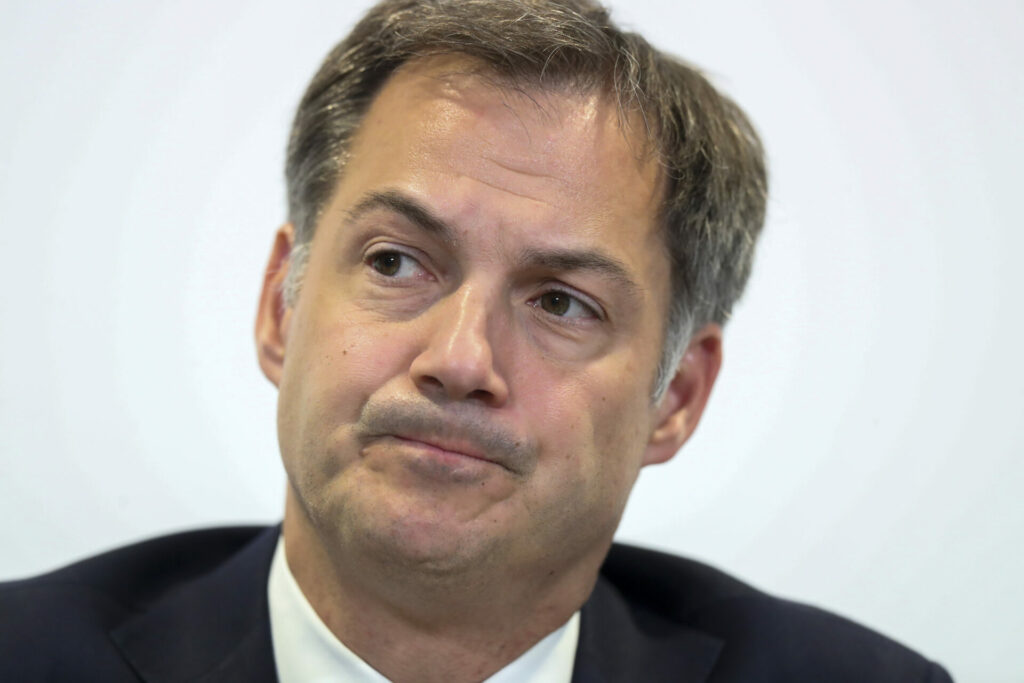As Belgium is hit by a national strike organised by trade unions to call for the protection of employees in light of the continued rising cost of living, Prime Minister Alexander De Croo has little understanding for the demonstrators.
At 11:00, a demonstration that will heavily disrupt traffic and public transport in and around the Capital Region on Monday.
"I have little understanding for how a general strike/demonstration evident is considered self-evident" by some union leaders, De Croo said on Flemish radio on Monday morning. "It paralyses the country for a large part and makes life miserable for many people who do not make that choice."
"It is not like anyone can say that the debate had to be cranked up. Everybody knows very well that we are in a very difficult situation," he said, referring to the consequences of the Covid-19 pandemic, Russia's invasion of Ukraine and the energy crisis.
"The Government has not been idle. We have taken measures from the beginning that all experts say are very effective ones," De Croo said.
'Not the complete solution for everyone'
In March, the Federal Government introduced support measures such as a wider social rate (a very low tariff for electricity and natural gas to ensure the energy bill remains affordable for around two million low-income households) as well as the reduced 6% VAT on gas and electricity, and lower excise on fuels. On Saturday, the ministers decided to extend these measures until the end of the year.
At the same time, De Croo is also aware that these measures "are not the complete solution for everyone," he said. "But they do go a very long way. Especially if you put them together with the automatic indexation."
This means that wages are indexed to inflation – which rose to to 8.97%, the highest level since 1982 in May – meaning they are automatically adjusted to keep pace with the rising cost of living to protect living wage workers, alongside social benefits.
As Belgium is one of the few countries in the EU where this happens automatically, wages and benefits rise faster than in the neighbouring countries – an expected 6% on average this year, which employers' organisations are calling "untenable" for companies in terms of labour costs.
They are saying that the automatic indexation has resulted in postponing investments and recruitments, and are asking for a so-called “index jump” of just 3%, meaning that the automatic adjustment of employee wages to inflation will be skipped once, compensated with a net premium of €500.
Related News
- Strike week in Belgium: What disruptions to expect, and when
- Why are unions organising another national strike?
- Only 1 of 4 metro lines running during strike week in Brussels
However, unions argued that not only wages, but also profits of companies in Belgium are continuing to rise more than those of businesses abroad. CEOs of Belgium’s largest listed companies (BEL20) received an average of €3.02 million gross, which represents a 14.4% increase in wages compared to 2020.
On Monday morning, De Croo pointed out that it is important to look at "the analysis, figures and what the experts are saying. They say that, in our country, people are better protected in terms of purchasing power than in any other eurozone country."
Still, he added that while this protection is "generally the case" for people in Belgium, he "understands that there are groups that feel a much bigger impact and that there are people who are having a particularly hard time today."
"At a time like this, I expect the social partners – trade unions and employers – to gather around the table instead of standing around shouting at each other. I understand both sides," De Croo said. "In unprecedented times like these, you only get ahead if you listen to each other."

